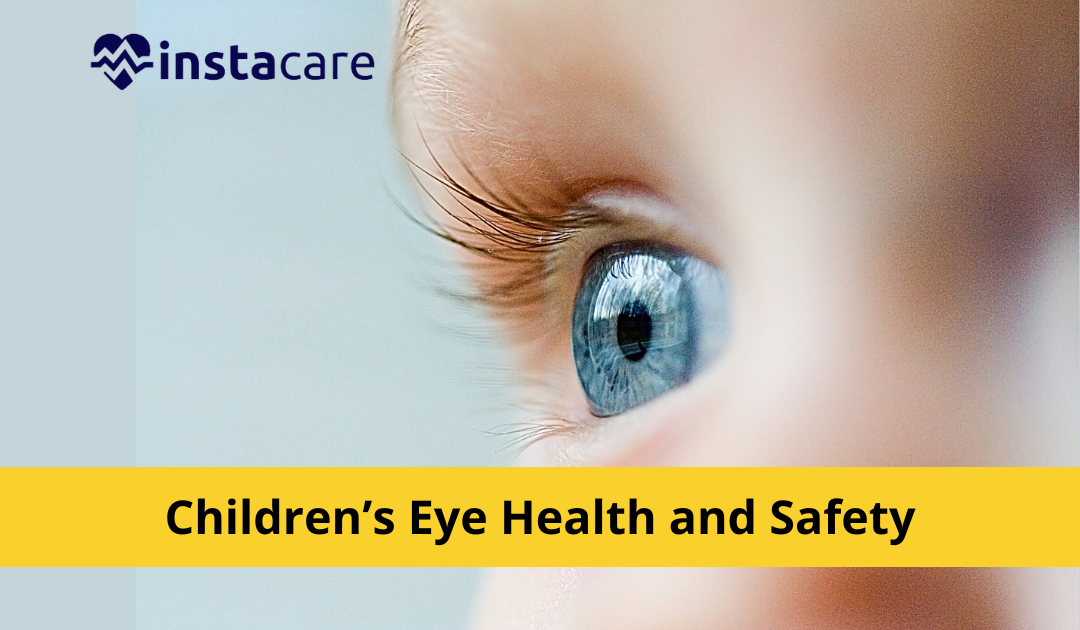The eyes and eyesight of children grow progressively and should be examined throughout their lives. You may see warning symptoms of common illnesses in your child's age group as they age. These disorders must be recognized and addressed for your child's eyesight to grow normally.
Every Age Group Of Children's Eye Health And Safety
Newborns (0 to 2 Months)
When a newborn is born, they are still acquiring complete eyesight. They cannot see at a distance and must concentrate their eyesight on items quite close to them. After six weeks, they should be able to follow an intriguing object with their eyes (such as a caregiver's face or a colorful toy) for brief periods. Many neonates experience persistent discharge from their eyes. Typically, this discharge is yellowish and sticky. It may accumulate to the point where your infant wakes up unable to open their eyes. If this occurs, gently remove the build-up, and use a clean, soft cloth and lukewarm water.
Babies (2 to 24 Months)
When newborns are over four months old, their eyes should not be crossed or mismatched regularly. If they do, your kid should be checked for amblyopia (lazy eye) or strabismus (strabismus is a condition in which the eye moves back and forth) (walleye).
Toddlers (2 to 5 Years)
Toddlers begin to acquire improved vision, particularly in terms of hand-eye coordination. They should be able to draw, color, and construct using building blocks, which will help them develop the visual abilities they will need while learning to read and write. Conditions include as strabismus and amblyopia are common at this age. An optometrist should evaluate toddlers with misaligned or drifting eyes. Depending on your child's needs, these issues may be addressed with eye exercises, glasses, or an eye patch.
School Age (6 to 12 Years)
When your child enters school age, they will be subjected to far more visual demands in their everyday lives. Throughout the school day, they are expected to complete various visual activities. Conjunctivitis is also very frequent among school-aged youngsters. This is because it is typically caused by viruses or bacteria easily transmitted from child to child. A child's challenges with vision impairment are not always visible. The following are some frequent signs of eye issues in this age group:
Reading items are held quite near to their face.
View More: Various Nose Bleeding Reasons And How To Stop It
Frequent blinking and rubbing of the eyes
Their head is tilted to one side Headaches, eye pain, and other eye-related discomforts are common.
Doubtful vision.
Teenagers (13 to 17 years)
Many teenagers have a scratched cornea at some time throughout their adolescence. The eye touches foreign things, including dirt, sand, wood chips, or contact lenses. These injuries are unpleasant, but most recover within a few days if not treated. However, it is advisable to have an eye doctor evaluate the damage to ensure that no foreign particles remain lodged in the eye.
Tips About Children's Eye Health And Safety
You can assist your child's eyes to stay healthy for life by doing the following:
Restrict your child's screen time. Too much screen time might raise your child's chance of getting eye strain or myopia. If they must spend a lengthy period in front of a screen (for example, during distance learning), have them follow the 20-20-20 rule: every 20 minutes, have them glance up from the screen at something at least 20 feet away and keep that gaze for at least 20 seconds.
Providing a nutritious diet for your child. Ensure they get enough vitamin A, C, and E, as well as omega-3 fatty acids, zinc, and lutein. Leafy greens, salmon, eggs, oranges, and berries are rich sources of these nutrients.
Keep an eye out for early warning symptoms of eyesight issues. Squinting, eye rubbing, and light sensitivity are all symptoms of a growing visual problem. Schedule a screening with your child's doctor if you see any of these behaviors.
Polycarbonate Lenses (if your child wears glasses). These lenses are shatterproof and will not fracture or break during active play, preventing glass fragments from entering your child's eyes.
Conclusion
You can also take several steps to assist your child in developing improved eyesight or maintaining their eye health. Two of the most crucial are having your child get frequent eye exams and wearing their glasses or contact lenses as recommended.
Please book an appointment with the Best ENT Specialist in Lahore, Karachi, Islamabad, and all major cities of Pakistan through InstaCare, or call our helpline at 03100002273 to find the verified doctor for your disease.
Source: https://instacare.pk/blog/children-eye-health-and-safety-month







